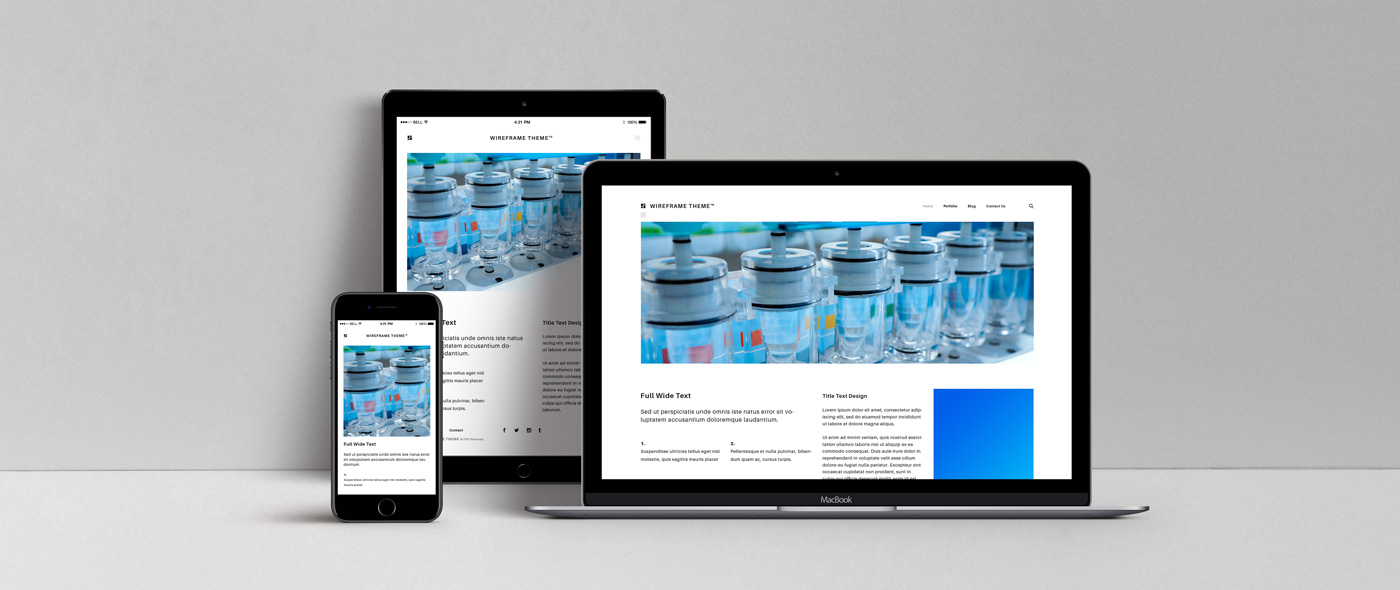Web-Design

In today's world, global digitalization has not bypassed industries like medicine and pharmaceuticals. Although the vast majority of diagnoses still require in-person consultations, more and more services with virtual assistants are emerging to offer preliminary patient screening, assist with scheduling appointments, or help select the appropriate medication. Major companies specializing in pharmaceuticals, equipment, or related services are fully leveraging digital opportunities, as a well-designed website plays an enormous role in shaping a modern, tech-savvy brand image, alongside a strong corporate identity.
UX Design
The creation of a website doesn't start with its visual design but with the preparation and approval of carefully thought-out prototypes, the sequence of page displays, and specific responses to user actions. All of this forms what is known as the User Experience (UX). The goal of UX design is to create simple, enjoyable, and easy-to-navigate pages where users can effortlessly find what they came for on the site, app, or program.

Often, multiple test versions of a product are created to find the best solution and study user behavior. Feedback is used to compare usage results. In general, improving the user experience involves examining the following aspects:
- User profiles (target audience)
- The product’s information structure
- User behavior on the pages/in the app
- Ease of use
- Content placement and information flow
UI Design
Once clear and user-friendly prototypes are approved, the next stage is visual design. UI design (User Interface) focuses on the appearance of the interface, its elements and layout, color accents, readability, and setting the overall tone for the page or app. At this stage, the corporate identity, overall brand direction, and the goals of the product are crucial.
Key aspects of UI design include:
- Visual perception of content and proper emphasis
- Graphic elements aligned with the brand’s philosophy
- Consistency and coherence across pages
- Responsiveness for optimal viewing on various devices (PC/Desktop, mobile)
Layout Development/Programming
Once intuitive and well-designed page layouts are created, the next step is converting this visual information into code that is compatible with most browsers, allowing end-users to interact with the product across different devices and environments. The development team’s goal at this stage is to maintain the original visual design as closely as possible and to thoroughly test the product for potential errors or unexpected behavior in non-standard conditions (e.g., very small screens, lesser-known browsers, outdated equipment).
The specialists at Tarqvara Pharma Technologies are ready to assist with the comprehensive development of a website or application, whether based on an existing corporate identity or as part of a full-scale creation "from scratch." In addition to years of experience in graphic design, we have a deep understanding of the pharmaceutical industry, allowing us to address aspects that are often overlooked by ordinary design agencies.
See also:
Branding / CVI / Logo
Printing Materials / Pagemaking
Pharmaceutical Packaging
Technical Animation
Illustration / Infographics
Creating Presentations
